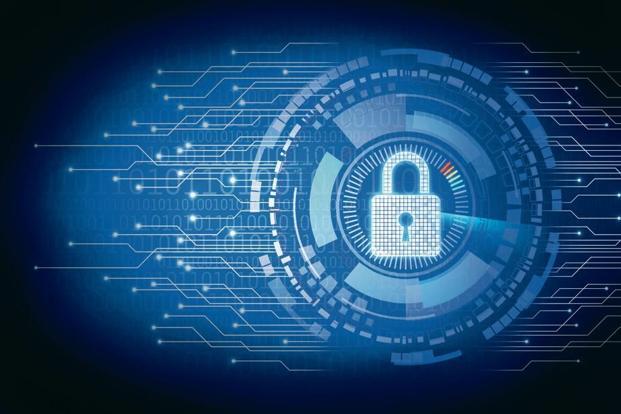Modern technology has made it possible for companies to increase employee efficiency and productivity to a whole new level. With the help of IT service companies, small-, medium-, and large-scale enterprises could maintain a healthy and competitive market.

However, the very same advancements have also paved the way for cyberattacks.
Although progress in cybersecurity hasn’t slowed one bit, it seems that threats are keeping up the pace. With the ever-growing list of malicious software and modus operandi in cybercrime, business owners must take necessary precautionary measures to secure their future.
Since the workforce has become more reliant on technology these days, companies need to bolster cybersecurity. This can be done not only through network updates but also in end-user training.
Here you will learn the three vital reasons to train your employees in IT security and other company policies you can implement to secure your database.
The Importance of Cybersecurity Awareness
Data breaches, ransomware, viruses, and denial-of-service attacks account for billions-worth of company losses every year. To prevent these from happening, most organizations develop countermeasures and deploy Internet security protocols to protect their data.
However, the digital landscape is continuously evolving. This is what hackers, predators, and other cybercriminals are looking to exploit today.
Because they are the company’s first line of defense, employees should learn what they can do to protect against attacks. One way to do this is to undergo cybersecurity training. The knowledge in identifying threats and how to react when faced with one will prove beneficial not only for the employees but also for your company.
Read below to learn about three more reasons cybersecurity training is a must for all organizations:
Cybercrime is here to stay
Technology continues to provide convenience, better productivity, and efficiency across every aspect of life. These perks are more significantly apparent at work.
But like progress, cyber threats are not taking a day off, too. In short, cybercrime is here to stay and will continue to do so in the foreseeable future.
Since many aspects of business operations rely on technology, you’ll need to amp up your protection, be it in customer service systems, modes of communications, accounting, and customer database, etc. Avoid showing any weak spots that cybercriminals can exploit by training your employees in cybersecurity. Also, this managed IT service Sacramento can help you get things in motion while your team is being trained by the same professionals.
Clients and stakeholders need reassurance.
Getting victimized by hackers isn’t the best way to gain your clients’ and stakeholders’ confidence. A data breach is the quickest way to push them to abandon ship.
To prevent this, you have to show that you’re taking all the necessary precautions to keep investments and data safe within your organization. Besides putting up firewalls, encrypting emails, and keeping your antivirus software updated, training your employees in cybersecurity also helps achieve this.
This way, clients, partners, and investors will have much-needed reassurance, knowing that the people handling their data know all about security risks and how to fight them.
Moreover, providing evidence of IT safety training will let your investors see the value of cybersecurity policies you may need to implement.
Damages from cybercrime are expensive.
Besides using secure email with business email hosting, ensuring that all employees are trained in cybersecurity awareness can help you save on costly damages.
You don’t need to be a cybercrime victim to know that any cybercrime threat – from viruses and malware to data breaches and identity theft – can be quite costly. Besides lost revenue, cyberattack victims can experience more repercussions, including:
- Damage to their reputation
- Lost client confidence
- Disrupted operations
- Lawsuits
Aside from these, companies dealing with intellectual properties may face cyber theft of IP and personally identifiable information (PII) and compromised client data, trade secrets, and infrastructure.
Considering what’s at stake, the benefits you get from ensuring your employees’ IT security awareness greatly outweigh training costs.
4 Company Policies That Protect Your Business From Cyber Threats
Besides ensuring that your employees know what to do to keep the company safe from cyber threats, there are other ways you can protect your business. One is to implement the following four policies in the workplace:
Acceptable Use Policy
This policy covers practices and constraints that users (i.e., your employees) should agree to before being granted access to secure portions of your corporate network. In short, acceptable use policies, also known as AUP, help protect the company against employee wrongdoing.
When creating an AUP, companies should develop clear rules about computer and network use and enforce them strictly across the organization. It should also contain sections about:
- Acceptable and unacceptable use of data and software
- Security protocols for software and hardware
- Information confidentiality
- Expectations on privacy monitoring
- Enforcement in case of violations
Bring Your Own Device Policy
The bring your own device (BYOD) policy tackles the use of employees’ own devices for work.
According to Tech Pro’s 2016 Research “Wearables and IoT: Strategies Security and Satisfaction,” 59 percent of businesses believe that allowing a BYOD policy and focusing on security precautions is essential for cybersecurity. This is particularly true for employees who use wearables such as fitness trackers and smartwatches at work.
Cybersecurity brand Norton by Symantec also advises small businesses to set up automatic security updates and enforce the strict use of company passwords when accessing corporate networks via all forms of mobile devices.
Incident Response Plan
An incident response plan (IRP) serves as an outline of instructions about an organization’s protocols in response to security incidents, network events, and confirmed breaches. Its goal is to identify threats, minimize damage, and lower the potential cost of an attack while seeking and fixing the cause to prevent anything similar from happening in the future.
The IRP also helps prevent damages, such as theft or loss of data, illicit access to the corporate network, and service outage. Therefore, a good IRP must include the following sections:
- Overview
- Roles and responsibilities in the cybersecurity action plan
- Incidents that require action
- Security safeguards and the current state of corporate network infrastructure
- Standard procedures for detection, investigation, and containment of threats
- Steps in threat eradication
Configuration Management Plan
The configuration management plan (CMP) covers the process of identifying and recording hardware and software components and the associated settings for each of them.
This plan is crucial in disaster recovery because it serves as a roadmap on the flow of data and the interconnection of devices and programs.
In most CMPs, you’ll find:
- New system software and component documentation
- Requirements for baselining and system hardening
- Processes for change management
- SOPs for patch management
Empower Your Employees with Knowledge
Knowledge is considered the most effective weapon to use in any battle. In cybersecurity, it is also the finest shield you can use to protect your company’s future.
AUTHOR BIO
Sharon Mallorca is the Sales Manager at Create IT in Dubai. Established by innovative digital agency Create Media Group, Create IT has rapidly become the Middle East’s leading IT Support and IT Solutions company, providing the highest quality IT support and services to a growing portfolio of global brands.








